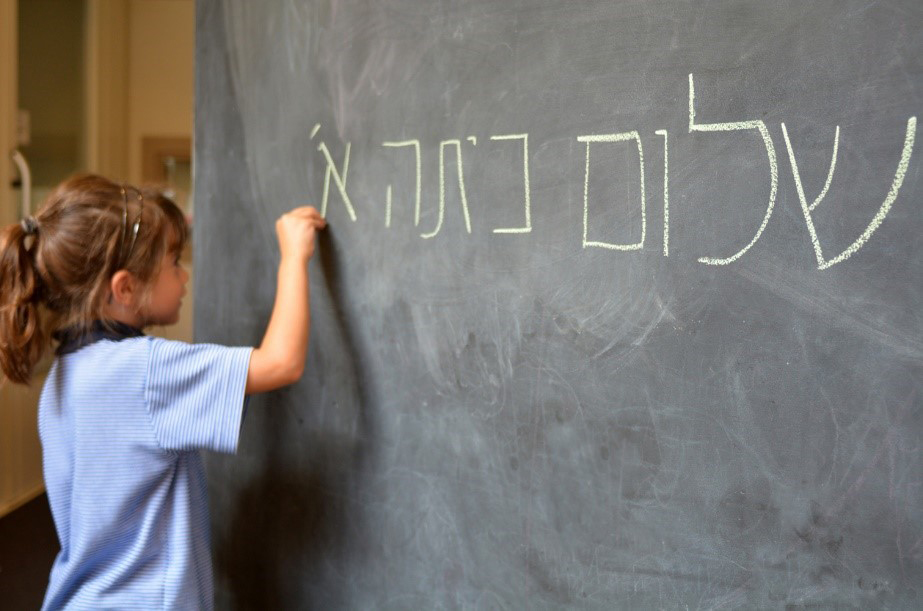An Israeli ulpan teacher weighs in: How can your kids best absorb Hebrew?
Reposted from Jpost.com JUNE 21, 2012
Shelly Margalit was born and raised in Jerusalem. After her army service, she studied Hebrew as a second language at the Hebrew University in Jerusalem. For the past seven years, she has worked as a Hebrew teacher in various contexts. She taught previously at a mixed Arab-Jewish school in Neve Shalom. She currently teaches at an elementary school in Petah Tikva and as an Ulpan teacher for the Jewish Agency.
Describe the pupils you typically teach? What are their ages? What backgrounds and countries do they come from?
I teach Hebrew to new oleh-pupils at a school in Petah Tikva. The pupils are typically between first and 6th grade, and made aliya from France, Kazakhstan and Ethiopia. Some of the pupils arrive without any knowledge whatsoever of Hebrew—althoughas small children, they are able to absorb the spoken language quickly, and now, at the end of the year, they practically speak fluently.
Last year, I taught Hebrew to first-graders at Hado Lishoni Elementary School in the yishuv Noah Shalom. This school is unique in that both Arab and Jewish pupils from the area learn together. Some of the Arab students had arrived without any prior knowledge of Hebrew. For them, Hebrew was a totally foreign language and they had to learn it as a second language alongside their native speaking Jewish peers.
I also teach in ulpanim affiliated with the Jewish Agency and with Masa program. These students are mostly university graduates from different countries that come to Israel on programs that last six months to a year, largely from the US and Russia. Most of these students are between 20 and 30.
What does your work typically involve? One on one tutoring? Small groups?
I mostly teach small groups of between ten to twenty students. The groups are all at different levels, ranging between Ulpan Aleph (level 1) through Gimmel (level 3). At level Aleph, students are really starting from scratch and have no foundation in the language at all. At level Bet, pupils can conduct basic conversations. By level Gimmel, the conversation has become fluent. At this level, we focus on building vocabulary, listening to the radio and reading newspapers in simple Hebrew.
At what ages do pupils experience the most success absorbing Hebrew?
Small children absorb the spoken language quickly in a way that surprises me every time! A boy that made aliya in first grade at the school where I taught as already speaking and chatting after three months at school. The pupils listen to their teachers and friends speaking, watch a lot of children”s television programs and really make efforts to communicate and engage with their surroundings.
Older students usually already have experience with foreign language study and assimilating into a second language, and this assists them very much. They know how to learn, what helps them. They are already acquainted with their strengths and weaknesses and learners. After two or three months of study, these students are typically able to lead simple conversations and improve their Hebrew significantly.
What accounts for the difficulties that students experience learning Hebrew? The difficulty of the language itself? Psychological stress due to moving? Resistance? Something else?
There are learning challenges at every level of study. Children who are frustrated by the move to Israel sometimes express this frustration by being “anti-Hebrew” and this really prevents them from progressing. With them, one should initially move very slowly. We try and make them feel comfortable and happy when they come to Hebrew class by using games, songs and activities that will be resonate with them. Slowly, with time, their resistance to learning the language decreases. Likewise, as their resistance to Hebrew itself decreases, so do their larger learning difficulties at school decrease.
Among older students, their conscious or unconscious lack of motivation is usually explained by their frustration with the fact that they are starting from scratch and the feeling that they have a long way to go yet and lack the patience and energy to learn another language.
What can parents do to prepare themselves for the transition?
For both older students and younger students, the best thing to do to prepare for ulpan is to learn the Hebrew vowels and letters. You can do this with books or through computer programs available the internet. Prior knowledge of the letters frees up a lot of time on the curriculum to get to more advanced material.
Listening to Hebrew songs and experience with translating or watching Hebrew television also helps. There are helpful Hebrew videos available on Youtube for both the beginner and more advanced student. For little children, there are various games that you can give them before they enroll in Ulpan, such as board games, card games and computer games that teach letters and basic vocabulary.

